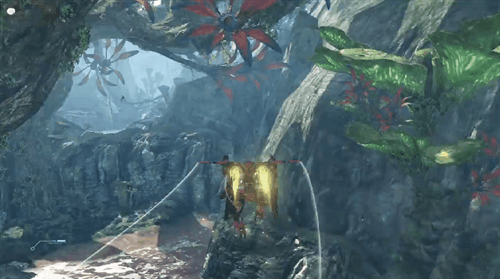You sort of hit the nail on the head on where I stand on the business model.
You're selling games, full price, but with less content
Depending on the game, this may or may not be true (and you have F2P where there is no full price per se.) You have to remember that you are still buying a game that's production value is anywhere between 2-10x higher than what for example games used to be. Or that many AAA games actually contain longer main story content that they have before. Or that the content the post-production content is clearly outside of the main storyline and pre-planned to be post-production and not by any means planned to be leftovers from production. Yes, there are plenty of realities that lead to games seemingly have more issues at launch (games are infinitely more complex, yet we still have far too much reliance on old management and development models that don't work with a rising amount of complexity in production), or most post-launch content, but that does not mean it's attributed to the business model itself necessarily (those would go under a topic called pitfalls of modern game projects, which is probably worth tens of hours of talk, so have to skip that for now).
Because the model ensues developers to ship out their product with a thinner baseline experience with all the content you'd normally crunch to get out, to come later, but historically these GaaS titles like Destiny, Diablo 3 and Anthem all led to release-crunch anyway, but on top of that they displease their playerbase due to the lack of bang for the budget, only to be nickled and dimed.
If you as the developer were do a
root cause analysis on some of these productions and why they had release crunch (which is tricky topic, because in general more and more AAA studios are able to ship games with less and less crunch these days to the point where you actually have studios that have practices that far from the crunch times we talk about here) or shipped with "thin baseline experience" you most likely would not end up with the model being the cause. The titles you outline here have plenty of other reasons why (including exponential scope from their previous relatives, unclear visions with bigger teams, concepts new to the teams etc. - again these are all modern development pitfalls that happen in productions regardless whether they have any live components or not).And the model itself ensues in no way that you should ship games with a thinner baseline experience, in fact with the space being so crowded it these days encourages the opposite and it encourages developers to try to make games that truly stand-out, because you might be trying to draw existing social groups from a game that has been improved for a long time to a new product (which brings its own challenges, but another topic that is too broad to really tackle here).
You add all of that consumer dissatisfaction on top of that experience and I think that hurts developers too.
This is sort of a tricky subject, as there are plenty of (internal) metrics that point towards the opposite; players are often enjoying these games more than previous and the competition on the market is becoming ever tougher and games can (unfortunately) still develop towards even more ambitious concepts, technical features and more long-term content. That's not to say there isn't dissatisfcation or that I necessary enjoy all the directions the industry is going towards, but there's also a massive divide between how a majority of players view and play games and how us enthusiasts who take it up to forums, view things.
Then of course, there's toxicity as well and we can argue that you should vote with your wallet instead of making angry rants but... I think decreasing consumer trust in the first place kinda works against itself and the idea of spreading out a game's development as a live-service product to the benefit of developers and work hours then. Ideally you'd want to remove any source of stress in a field of work, but if you ask me short-term intense stress is better than prolonged, dreadening stress over multiple years... Where potentially your consumers will sing praises for you because the shipped product was amazing.
No disagreements there. However I would say the reality can be quite different in terms of what you view as short-term / long-term stress; just as an example, in productions like The Last of Us (a new IP) you are actually stressing for years and years about how things are going to turn out, as the real feedback comes very, very late and the stakes are high, where as when you are live you can get great feedback loops based on how players actually view things when you give them tangible content. However, the full equation comprises of so many different things, that I wouldn't really necessary say either type of production is less/more stressfull, as the contain so many different joys and hardships. I am more trying to get the fact that players (myself including before I joined the industry and learned what making games is really about) have quite different views on how developers might feel or be inclined to do, compared to what the job may entail in reality and what that means to us as human being (and players!).



